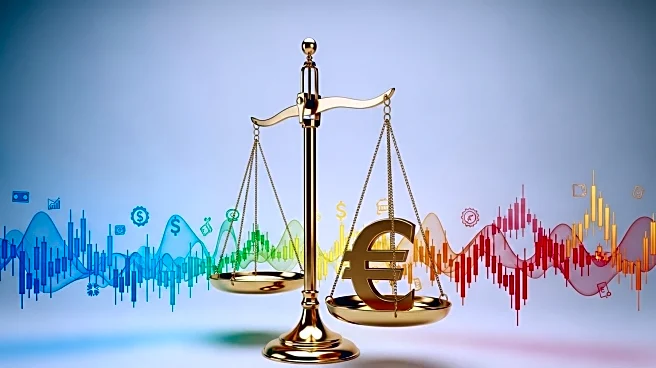What's Happening?
J.P. Morgan has upgraded its stance on the euro zone from 'neutral' to 'overweight', highlighting the increased attractiveness of equities in the region. This decision comes after a period of underperformance and policy support that has made euro zone equities more appealing. According to J.P. Morgan strategists, led by Mislav Matejka, the Euro Stoxx 50 index has lagged behind the S&P 500 by nearly 18% since a strong first-quarter rally. However, this underperformance is seen as a buying opportunity due to cheaper valuations compared to U.S. counterparts and potential catalysts such as German stimulus and an improving euro zone credit impulse. The brokerage also noted that the 15% tariff on European Union goods has alleviated a significant overhang on the region's equities.
Why It's Important?
The upgrade by J.P. Morgan signals a shift in investor sentiment towards the euro zone, which could lead to increased capital inflows and investment in the region. This move is significant for U.S. investors and businesses with interests in Europe, as it suggests potential growth opportunities and a more favorable investment climate. The focus on European defense stocks and expected capital expenditure could boost sectors like industrials, construction materials, and utilities. Additionally, the potential for earnings growth and share buybacks could further enhance the euro zone's market outlook, making it an attractive option for global investors seeking diversification and growth.
What's Next?
J.P. Morgan's positive outlook on the euro zone may encourage other financial institutions and investors to reassess their positions on European equities. The anticipated German stimulus and improving credit conditions could serve as catalysts for further market gains. As the year progresses, the euro zone's economic performance and policy developments will be closely monitored by investors. The brokerage's year-end target for the Euro Stoxx 50 index is set at 5,800, indicating confidence in continued market growth. Stakeholders will be watching for any changes in economic policies or geopolitical developments that could impact the region's investment landscape.









